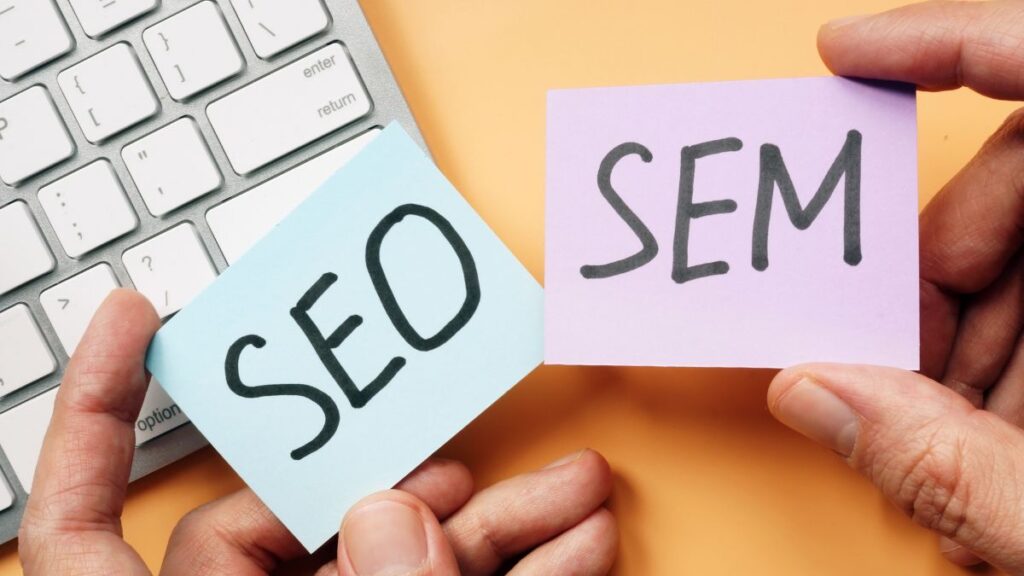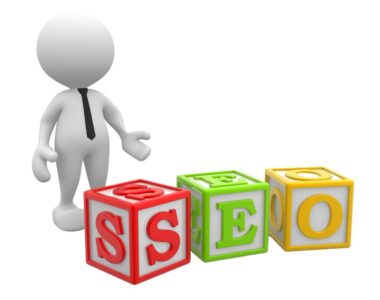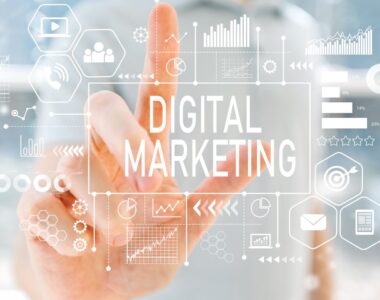If you are a small business owner looking to grow your online presence and reach more customers, you may have heard of two popular digital marketing strategies: SEO and SEM. But what are they, and which one is better for your business, SEO or SEM? This article will explain the difference between SEO and SEM. It will also discuss how they can work together. Additionally, we’ll explore how to choose the best option. This choice will align with your business goals and budget.
Basics Breakdown:
A. What is SEO (Search Engine Optimization)?
Search engine optimization, commonly referred to as SEO, involves enhancing a website’s visibility in organic search results. It revolves around optimizing elements like keywords, backlinks, and both on-page and off-page content. Essentially, when you produce high-quality content tailored to your target audiences, it’s more likely that search engines will rank you higher on their results pages.
B. What is SEM (Search Engine Marketing)?
On the flip side, search engine marketing (SEM) centers on paid advertising efforts. SEM typically encompasses pay-per-click (PPC) campaigns, where businesses run paid ads (like Google Ads) and pay a fee every time someone clicks on them. SEM strategy is not just about throwing money at ads; it involves meticulous keyword research, crafting compelling landing pages, and monitoring conversion rates.
Advantages of SEO
- Cost-effectiveness: Over the long term, SEO often proves more cost-effective. Once you’ve established a robust SEO strategy, the organic traffic it drives doesn’t come with a recurring cost, unlike paid advertising.
- Building Trust: High-quality content tailored to the user’s needs enhances brand credibility and trust.
- Sustainable Traffic Growth: A well-executed SEO plan ensures steady growth in organic search results, establishing a long-term online presence.
- Improved User Experience: SEO isn’t just about search engines. A user-friendly website enhances user experience, retaining visitors and encouraging conversions.
Advantages of SEM
- Immediate Visibility: While SEO strategies typically require time to mature and yield results, SEM ensures your business gains immediate traction. Once you launch a paid campaign, your advertisements promptly surface on search engine results pages (SERPs), giving you a swift online footprint.
- Precision Targeting: One of SEM’s standout features is its capability to precisely target an audience. With SEM, companies can fine-tune their campaigns to cater to specific age groups, interests, geographic locations, and user behaviors, ensuring that advertisements resonate with the most relevant viewers.
- Budget Flexibility: SEM caters to a diverse range of businesses, from established brands to fledgling startups. It provides the flexibility to determine daily ad spend, allowing firms to modify their SEM strategies on the fly, ensuring they align with real-time analytics and outcomes.
- Performance Tracking: Platforms, especially ones as renowned as Google Ads, come equipped with a suite of tools designed to gauge and refine ad campaigns. These utilities make the task of tracking key performance indicators and optimizing for better results straightforward and efficient.
Factors to Consider for Small Businesses
- Budget Constraints: Understanding the financial dynamics of both strategies is essential. While SEO is a long-term investment that generally provides sustained results over time, SEM, if not strategically planned, can rapidly drain a limited budget, especially with competitive keywords and sectors.
- Time Horizon: Your desired timeline for results can guide your strategy. For businesses looking for an immediate boost in visibility, SEM, particularly through PPC campaigns, offers instant exposure. On the other hand, SEO, though gradual, provides lasting organic growth and credibility in the digital landscape.
- Competition Analysis: Before venturing into either SEO or SEM, thoroughly examining your market space and competitors is indispensable. Understanding the competitive landscape helps identify niches or keywords that might be less contested, enabling a more tailored and effective strategy.
- Business Goals: Whether the aim is to enhance brand recognition, generate potential leads, or drive sales, it’s vital that the chosen digital marketing approach—be it SEO or SEM—resonates with and supports these business objectives to ensure maximum effectiveness and ROI.
Integrative Strategy: Combining SEO and SEM
For a vast majority of enterprises, striking a balance between the instantaneous advantages of SEM and the enduring value of SEO proves most effective. By concurrently dedicating resources to organic SEO practices and allocating budget for targeted SEM initiatives, businesses can ensure a commanding presence across both the organic and paid spectrums of search engine results pages (SERPs). This integrated approach not only optimizes visibility but also fosters a more comprehensive digital footprint.
Best Practices for Small Businesses
- Stay Updated: Search engine algorithms and social media platforms frequently update their systems. Staying informed about these changes and adapting your strategies is essential to maintaining a competitive edge.
- Seek Expertise: Dipping your toes into the SEM pool can be complex. By collaborating with experts in the field, you gain insights and optimize your investments, ensuring a better return on investment (ROI).
- Local SEO and SEM: For smaller businesses, focusing on local audiences can be a game-changer. Implementing local SEO techniques, combined with location-specific SEM campaigns, can efficiently funnel local traffic to your services or products.
- Engage on Social Media: Integrating social media into your marketing plan boosts your online visibility and complements and amplifies your SEO and SEM efforts, allowing for a broader and more engaged audience reach.
Conclusion
SEO and SEM, each with unique strengths, are pivotal for businesses navigating the digital arena. Whether through high-quality content that resonates with your audience or a precisely targeted paid ad, ensuring your brand’s visibility is paramount. So, understanding SEO is essential if you aim to drive traffic through organic results. To leverage instant PPC advertising benefits, grasping SEM is crucial for your small business. Dive in, experiment, measure, and iterate—that’s the digital marketing mantra for success!





